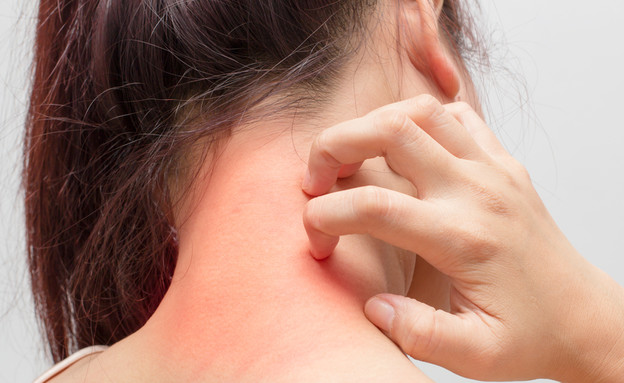“It’s only a children’s disease”
In the past they did think so, but today they understand that this is a mistake. It usually starts several months after birth. In about 60% of patients, by the age of 12 the disease will go into remission. But in quite a few cases it continues into adulthood, either in a wave form of intermittent aggravations and benefits, or in constant activity. There are also a few percentages of first appearance in old age and even in the third age. Among adults the prevalence is 2-10% of the population. It also turns out that atopic is more common in northern countries, in urban areas and among people of high socioeconomic status. It is possible that rubbing against dust and allergens from infancy reduce the phenomenon.
“it’s contagious”
There is no question here: it is not (and the thought that it is is another difficult element in everyday life). Atopic is not an infectious-viral disease nor an allergy, but is associated with a combination of increased inflammatory activity with overactivity of the immune system. Changes in the structure of the skin, along with environmental effects and a close connection to genetics, trigger the disease.
“The injury is only skin”
As mentioned, there are cumulative side effects and a negative impact on the quality of life: stigmas, loneliness, avoidance of daily activities – from pool and sandbox to studies and work, mood disorders, depression and anxiety. In many cases there is even a connection to other inflammatory and allergic diseases such as asthma, allergic rhinitis, allergic eye inflammation and more (the group of atopic diseases).
“Avoid showering or alternatively: multiple baths with boiling water”
For the immediate term, hot water can soothe the itch, but in reality, it only makes the inflammation worse. Too cold water can also be problematic. The recommendation is short showers in lukewarm water, no more than once a day – so as not to damage the protective layers of the body, with soap for sensitive skin or suitable bath oil, without strong rubbing of the skin. Immediately after bathing, both in an active state and to extend the pause, apply moisturizer – and this is one of the most important points in the treatment, as it improves skin pressure and reduces the inflammatory reaction. Sticking to a cream will reduce the need for ointments with steroids. It is important that the cream be free of color and odor, not too liquid or watery, and also affordable. If for reasons of cost or unpleasantness it will not be used, we did nothing.
“Extreme avoidance of any external trigger that aggravates the atopic”
External triggers that may lead to an aggravation – some almost always and some in some cases, which is discovered through trial and error – are: dust, grass, vegetation, animals, cleaning and disinfecting agents (for example, alcohol gel), adhesives and paints (and slime), latex gloves, Sand, chlorine in the pool, woolen clothes or many synthetic materials. The recommendation is for ventilated cotton clothing, preferably in layers that are easy to take off and prevent cold but also sweating. It is also recommended to avoid direct exposure to high temperatures, and you can reduce the dryness in winter by using a humidifier. Sunscreen or an oily moisturizer may help before entering the sea. After bathing, it is important to wash the body with fresh water and apply moisturizer. Frequent swimming in the pool is best avoided in an active atopic state.
Atopic dermatitis can be cured, or alternatively: there is nothing to be done
Atopic dermatitis is a tendency of the body and is a chronic condition. If the disease is moderate to severe and has continued into adulthood, the chance that it will go into a prolonged remission without treatment is not high. At the same time, there are currently excellent local treatments, along with biological and other quite effective treatments. Or in the words of Dr. Dalal: “In recent years we have witnessed a new standard of efficiency and safety in treatment, and it will only continue to be established. It’s exciting and gives hope to us doctors and of course to the patients.”
